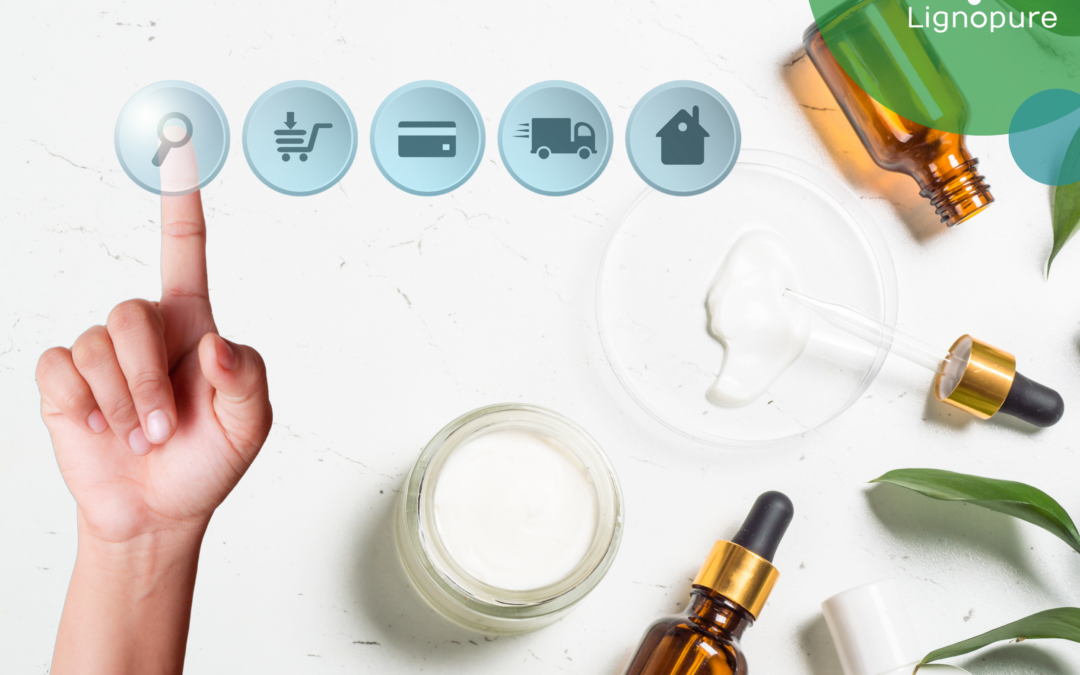
Written by: Gabriela Meza Armenta – Marketing and Business Development Manager at Lignopure
The clean beauty movement and its constant redefinition is one of the fastest-growing categories in the personal care sector. But with the lack of regulations and rules, brands and retailers set their own standards – from free-from ingredient claims to recyclable packaging – creating confusion for the final consumer. This has led to a demand for real transparency in order for companies and consumers to validate the sustainability aspect of a final product.
Cosmetic ingredients transparency
Transparency in cosmetic ingredients in the first instance refers to the practice of disclosing the composition and ingredients used in cosmetic products to consumers. It involves providing clear and comprehensive information about the components present in a product, including both active and inactive ingredients. Transparent labeling allows consumers to make informed choices about the products they use and promotes trust and accountability in the cosmetics industry.
In a second instance transparency in cosmetic ingredients nowadays includes the disclosure of the manufacturing practices and supply chain traceability of the cosmetic ingredient producers. Consumers are demanding more and more to know if these ingredients come from sustainable raw materials, manufacturing processes and logistics practices.
Transparency in practice
In an ideal world, transparency would mean that a company provides full information about their own standards and practices as well as the ones of their suppliers. While some brands have gotten on board with freely sharing information, so consumers are better informed and feel the security that the product they are buying meets their sustainability and efficacy needs, there’s still a lot of work to be done to decrease the gatekeeping of information in the cosmetic industry.
Some initiatives have been already implemented to promote ingredient transparency in the form of:
- Ingredient Lists: Cosmetic manufacturers are required to provide an ingredient list on the product packaging or label which typically lists the ingredients in descending order of concentration, with the most abundant ingredients listed first. This allows consumers to understand what the product contains and make informed decisions based on their preferences or sensitivities.
- INCI Names: The International Nomenclature of Cosmetic Ingredients (INCI) is a standardized system for naming cosmetic ingredients. INCI names are used internationally and provide consistency in ingredient labeling. They ensure that consumers can identify specific ingredients across different products.
- Allergen Disclosure: Some countries or regions require the labeling of potential allergens in cosmetics. Common allergens, such as certain fragrances or preservatives, are identified on the label to help individuals with sensitivities or allergies avoid products that may trigger a reaction.
- Certification and Labels: Various certifications and labels are available to indicate specific ingredient qualities, such as organic, natural, cruelty-free, or vegan. These labels provide additional information about the product’s composition, manufacturing processes, or ethical considerations.
The future of transparency
Offering transparency helps to build trust and even if not everything is perfect, brands and manufacturers can benefit from it by allowing consumers to engage in their purchase decision and feel that the company in question understands and care for their needs and demands. Unfortunately, this is not the case for most of the retailers, which offer little to no information about their suppliers, leaving the raw material sources very far removed from the end consumer.
Because beauty products are often made with a mixture of natural and synthetic ingredients. In the case of natural raw materials, which are sourced mainly from plants and in some cases the earth, transparency should be essential because these may be linked to the destruction of the environment and poor working conditions. Other points to take into consideration are the potential risk of contamination and even adulteration of the natural ingredient in question due to economic reasons. All these risks can be tackled with transparency policies and information in place like the existing certifications but also in the shape of blockchain.
Finally, we at Lignopure are truly committed to offer safe natural ingredients made in Germany to the cosmetic industry which are produced under high quality and safety standards. Starting from the careful selection of our raw material suppliers to analyzing the quality and purity of the biomasses in question and being in constant process optimization for better sustainable results. We believe that transparency is a right that consumers deserve and we are committed to support brands in this amazing sector transition.

